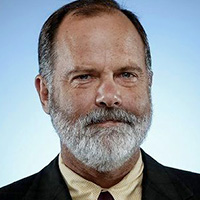President Obama has described economic inequality as the “defining challenge of our time.” Pope Francis calls it the “root of social ills” and has bemoaned an international economy that “seems fatally destined to suffocate hope and increase risks and threats.” Inequality animated Karl Marx and preoccupied Franklin Delano Roosevelt. It is at the center of modern American politics and almost certainly will play a significant role in the coming campaign for president.
It was Christ who observed that “you always have the poor with you,” and many have treated poverty as a sad but immutable condition. Importantly, however, it is not static, at least not in this country or region. American inequality decreased in the 1950s, only to explode in the 1970s and ’80s and to expand yet again during the recent recession.
Los Angeles once was home to thriving middle-class industries: aerospace, for example, and auto manufacturing. In those days, inequality here was less severe. But these industries declined, and today Los Angeles is a staggeringly unequal place, home to more than 500,000 men and women working at minimum-wage jobs and as many as 40 billionaires. If traffic weren’t so grinding, it would take less than half an hour to drive from Bel Air to South Central. One recent study (highlighted in our Infographic) concluded that Los Angeles was among the American cities with the largest gap between the richest and poorest residents.
Those same jarring notes ring across larger California. This state has one of the biggest economies in the world, and it is a source of enormous pros¬perity. California has two of the world’s largest ports and two of the world’s busiest airports, not to mention its entertainment industry, Silicon Valley, abundant farmlands and popular tourist destinations.
Yet it is uncomfortably stratified. In California, whites make almost twice as much money as blacks. Asian Americans can expect to live an average of almost 87 years, more than 12 years longer than African Americans. Nine out of 10 whites and Asian Americans hold high school diplomas, but only 60% of Latinos do. (These findings come from “A Portrait of California, 2014-2015,” a powerful assemblage of data on the current state of our state.) Incomes are rising for Californians, but not equally; even as the economy recovers, we are becoming more unequal — not less.
This, the second issue of Blueprint, is devoted to exploring and under¬standing the ramifications of that inequality. Research featured here looks at the role of wages — in Los Angeles, a new minimum wage will begin phasing in next year — as well as the impact of inequality upon health, education and some of L.A.’s most struggling communities. We look, too, at a provocative proposition: Perhaps we should not be overly concerned with inequality but rather should focus on economic growth.
Blueprint is still a young magazine, but as we publish our second issue, our ambitions are clear. We are tackling the big questions that confront this state and region and focusing on smart, cutting-edge research into those questions. We’re not so much about solutions, although some solutions do suggest themselves from this research. We are more about conversations.
I hope the pieces contained here will start some of those conversations, as policy makers and others who care about society consider inequality and how it shapes neighborhoods and destinies. Few questions more define our history; few are more important to consider and address.
Thank you for being part of Blueprint and for participating in this crucial discussion.



















